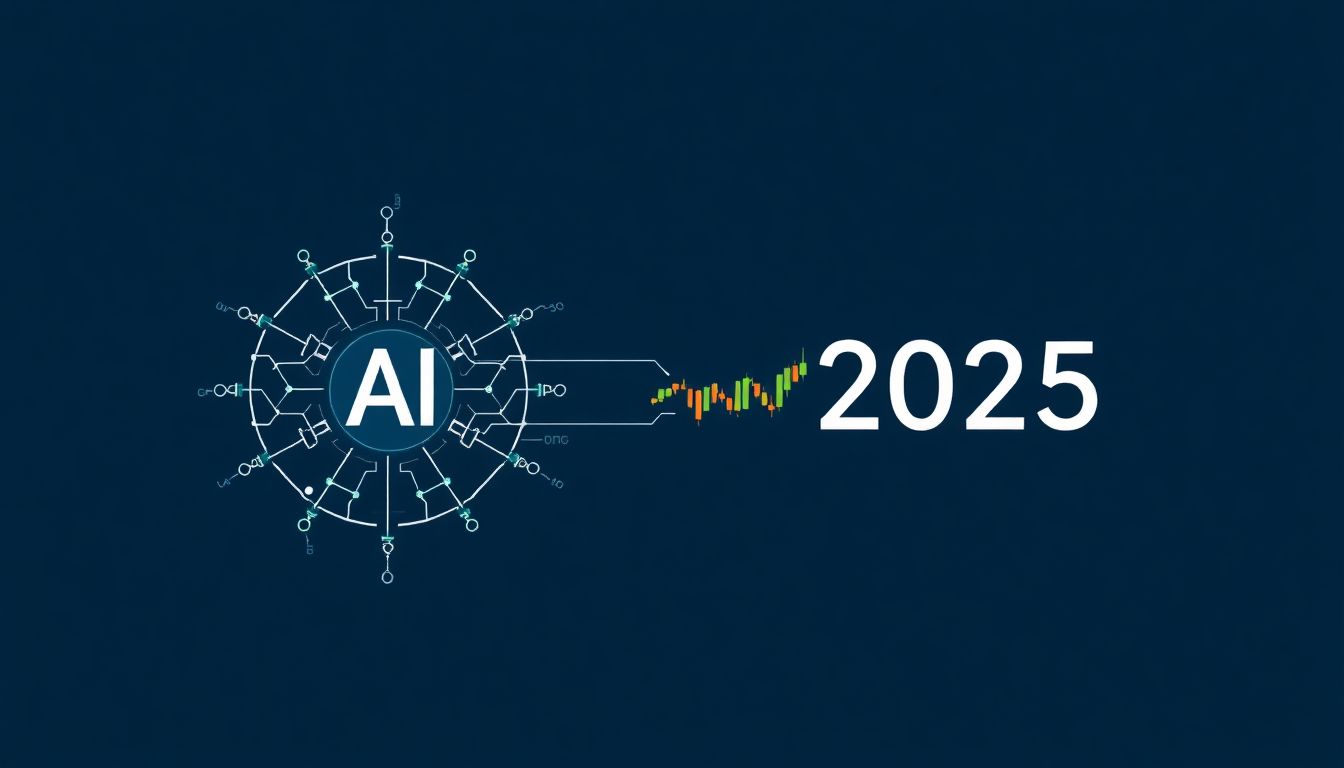If you’re curious about how AI business platforms can help your company grow, you’re not alone. Many business owners worry about keeping up with new tech and using it effectively. Keep reading, and I’ll show you how these platforms support transactions and what top options might fit your needs, so you can make smarter choices about AI in your business.
By the end, you’ll have a clearer idea of the best AI tools out there and how they can fit your industry. Plus, I’ll share tips on picking the right platform for your specific needs—no tech jargon or confusing lingo, just straightforward info to help you decide.
Stick around, and you’ll see how AI platforms like IBM Watsonx, Google Vertex AI, and others are transforming the way businesses operate in 2025—making things easier, faster, and more efficient.
Key Takeaways
Key Takeaways
- AI business platforms like IBM Watsonx, Google Vertex AI, and Microsoft Azure AI help companies analyze data, automate tasks, and create custom AI solutions in 2025.
- These platforms make AI easier to adopt, scalable, and more secure, which helps businesses stay competitive as AI use grows fast across industries.
- In the AI trading market, platforms improve speed, accuracy, and risk management, with market size expected to reach over $20 billion by 2034.
- The global AI market continues to grow rapidly, offering more tools and options for automating and optimizing various business processes.
- North American companies lead in AI platform use, while European firms focus on secure, flexible solutions like Azure AI for compliance and data privacy.
- Different industries are using AI platforms for specific needs: healthcare for diagnostics, retail for personalization, manufacturing for maintenance, and finance for fraud detection.
- Select an AI platform based on your needs, ease of use, security, integration, and future growth potential, testing options before committing.

What Is an AI Business Platform and Why Does It Matter in 2025?
An AI business platform is a digital environment that helps companies integrate artificial intelligence tools into their operations. These platforms provide the infrastructure, software, and services needed to develop, manage, and deploy AI solutions efficiently. In 2025, their role becomes even more crucial as AI adoption skyrockets across industries.
AI platforms streamline complex tasks such as data analysis, customer service automation, and decision-making processes. For example, a retail business can use an AI platform to personalize shopping experiences or optimize inventory management without building everything from scratch. Essentially, they act as centralized hubs that make AI accessible, scalable, and easier to implement.
Given the rapid growth—like the AI trading market expected to hit nearly $70 billion by 2034—these platforms are vital for staying competitive. They help businesses from finance to healthcare tap into AI’s potential quickly, cost-effectively, and securely.
How Sellaitool.com Supports AI Business Transactions
If you’re involved in buying or selling AI tools and websites, sellaitool.com is the place to be. This marketplace is built specifically for the AI community to make digital asset transfers simple, secure, and transparent.
Sellers can list their AI products with detailed revenue data and growth metrics, ensuring potential buyers see verified info. The platform guides sellers through creating compelling listings that attract genuine buyers and offers tools for valuation and analytics. If you’re looking to sell an AI-powered website or tool, this platform simplifies the process.
For buyers, the marketplace offers a curated selection of high-quality AI assets, all verified with performance history and revenue figures. The secure messaging system and escrow services ensure deals are safe and transparent, reducing typical marketplace risks. Whether you’re buying to expand your portfolio or investing in AI tech, sellaitool.com provides the support, resources, and trust you need.
Leading AI Platforms for Businesses in 2025
By 2025, several big names stand out when it comes to AI platforms tailored for businesses. These platforms are not just providing AI tools but creating ecosystems that allow companies to develop, customize, and deploy AI solutions with ease. Here are some of the top contenders:
- IBM Watsonx: Known for its enterprise-grade AI capabilities, Watsonx helps businesses analyze vast data troves, automate processes, and create custom AI models.
- Google Vertex AI: Google’s platform offers a unified environment for model development, training, and deployment, making it ideal for data-driven enterprises.
- UiPath AI-powered RPA: Focused on robotic process automation, UiPath combines AI with automation tools to streamline repetitive tasks across industries.
- Microsoft Azure AI: With its extensive cloud infrastructure, Azure AI provides a range of cognitive services, machine learning models, and deployment options suitable for all sizes of business.
- Salesforce Agentforce: Built for CRM and marketing applications, this platform leverages AI to automate customer interactions and personalize experiences.
As the market continues to grow rapidly—driven by a CAGR of over 20%—these platforms are shaping how businesses across North America, Europe, and Asia implement AI. If you’re considering an AI platform for your company, understanding each one’s strengths will help you make smarter choices for 2025 and beyond.

How AI Business Platforms Are Driving the AI Trading Boom in 2025
AI trading platforms have become a big deal, especially in North America, where the market size hit USD 3.21 billion in 2024.
These platforms are expected to grow to around USD 20.33 billion by 2034, thanks to a CAGR of over 20%.
For traders and financial firms, using AI platforms means faster data analysis, better risk management, and more accurate predictions.
To tap into this growth, businesses should evaluate platforms like AI platforms that specialize in trading algorithms.
One practical tip is to look for platforms that integrate with existing financial tools and offer real-time analytics.
If you’re new, start small—test different models and see which one performs best with your trading style before scaling up.
Remember, the goal isn’t just automation but making smarter decisions faster, which AI platforms make much easier than manual analysis.
The Broader AI Market Growth and What It Means for Business Platforms in 2025
The global AI market was valued at roughly USD 638 billion in 2024, and it’s heading toward USD 3,680 billion by 2034.
In the U.S., the AI market alone was USD 146 billion last year and should reach over USD 850 billion by 2034, growing at around 19% annually.
This fast pace means AI isn’t just for tech companies anymore; it’s reshaping industries from healthcare to retail.
For businesses, this rapid growth translates into more tools, more options, and more opportunities to automate and optimize processes.
A smart move is to keep an eye on emerging trends and new platform features, like low-code AI development, that can help your team innovate without extensive coding knowledge.
To really make the most of this expansion, companies should focus on integrating AI platforms that align with their long-term goals and offer scalable solutions.
In practice, that could mean partnering with providers like Microsoft Azure AI or exploring niche platforms tailored for your industry.
Top AI Business Platforms in North America and Europe in 2025
North America is leading the way in AI platform adoption, driven by strong financial infrastructure and early AI integration.
Platforms like IBM Watsonx help enterprises analyze large datasets and create custom AI models.
Google’s Vertex AI offers a unified environment for building and deploying models, popular among data teams.
Meanwhile, in Europe, companies are increasingly turning to flexible, security-focused platforms like Azure AI and niche solutions tailored for GDPR compliance.
When choosing a platform, think about your data requirements, integration capabilities, and the kind of AI solutions you need—whether it’s customer support, predictive analytics, or automation.
Pro tip: Opt for platforms that offer easy onboarding, user-friendly interfaces, and flexible APIs, so your team can start using AI without a ton of fuss.
Remember, the right platform isn’t just about features but how well it fits your company’s specific needs and future plans.
How AI Platforms Are Transforming Industries in 2025
Different sectors are benefiting from AI in unique ways, and 2025 is seeing major shifts across industries.
Healthcare uses AI platforms for diagnostics, patient management, and drug discovery—speeding up research and improving patient outcomes.
Retailers leverage AI for personalized marketing, inventory management, and chatbots that handle customer queries 24/7.
In manufacturing, AI-driven predictive maintenance and quality control help cut downtime and reduce waste.
Financial services rely heavily on AI for fraud detection, credit scoring, and algorithmic trading, tapping into the market growth discussed earlier.
For companies in these sectors, adopting industry-specific AI platforms can lead to increased efficiency and better decision-making.
Actionable tip: Use case studies and demos from platform vendors to see how they’ve helped similar businesses solve real-world problems.
By pinpointing your industry’s pain points, you can choose AI tools that deliver quick wins and ongoing value.
How to Pick the Best AI Platform for Your Business in 2025
Choosing the right AI platform isn’t just about the most popular brand; it’s about what works for your business.
Start by assessing your core needs: Do you need NLP capabilities, automation, predictive analytics, or all of the above?
Next, consider ease of integration—can the platform connect smoothly with your existing tools and data sources?
Security is crucial—look for platforms with robust data privacy measures, especially if handling sensitive customer info.
Don’t forget scalability—your AI needs today might grow, so opt for solutions that can expand with you.
For practical steps, create a checklist of must-have features and compare vendors based on those criteria.
Also, test-drive platforms through demos or trial accounts to get a feel for their usability and performance.
Finally, consider vendor support and community resources, because it’s handy to have help when AI projects hit snags.
In a nutshell, pick an AI platform that aligns with your goals, fits within your budget, and offers room for growth.
FAQs
AI business platforms in 2025 streamline operations, improve decision-making, and enable automation across industries. They help businesses innovate faster and stay competitive by providing scalable AI tools tailored to specific needs.
Sellaitool.com facilitates AI business transactions by offering platforms and tools that connect buyers and sellers, simplify deal processes, and provide secure, efficient methods for executing AI-related sales and services.
Top AI platforms in 2025 include IBM Watsonx, Google Vertex AI, UiPath for RPA, Microsoft Azure AI, and Salesforce Agentforce, each offering unique features tailored to various business needs and industries.
Selecting an AI platform involves assessing your specific needs, integration capabilities, scalability, and industry focus. Comparing features and evaluating vendor support helps identify the best fit for your business.